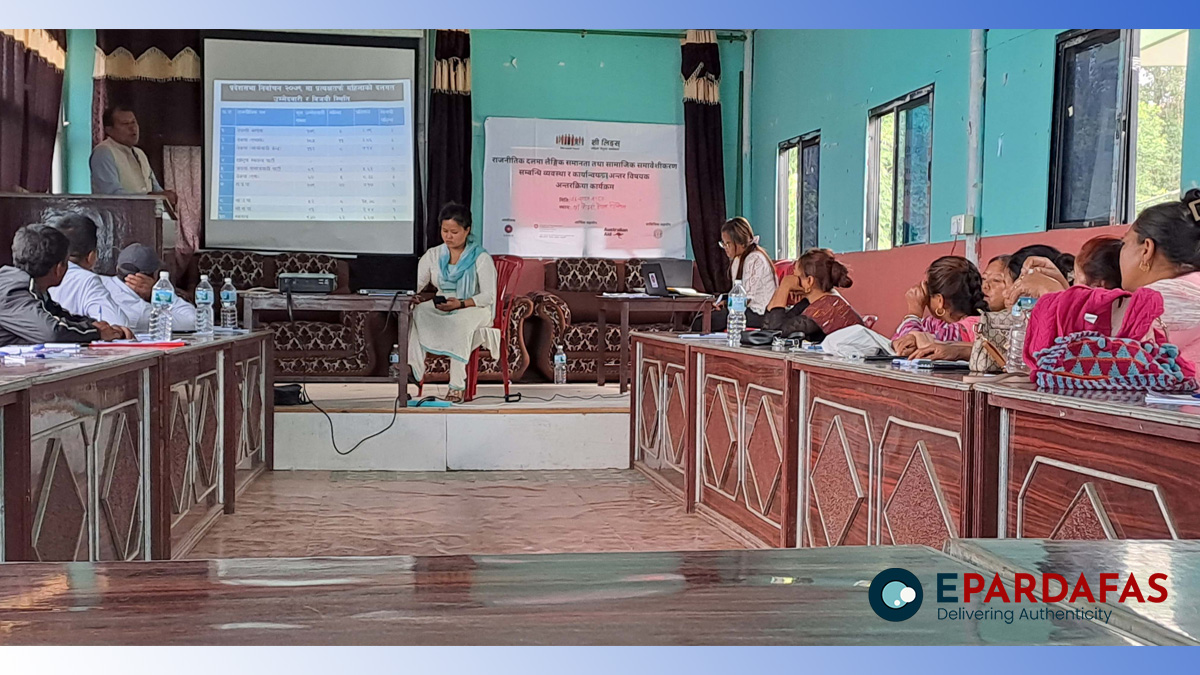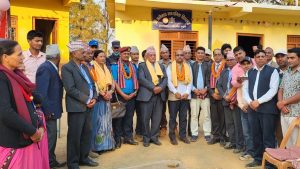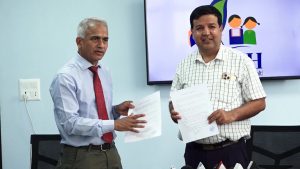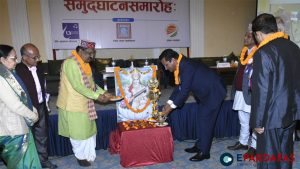
Women and Dalit Representatives Voice Concerns Over Exclusion in Local Government Planning

Women and Dalit representatives in Khotang district have raised their voices against what they perceive as a glaring exclusion in the formulation of plans and allocation of budgets at the local government level. In an interactive program organized by the Center for Dalit Women Nepal in Diketel Bazar on Saturday, participants highlighted instances of male representatives dominating the decision-making processes and budgetary allocations.
Diksha Rai, a female ward member of Halesi Tuwachung Municipality-7, expressed her dismay over the lack of involvement of women members in the planning and budget allocation processes within her ward. Rai alleged that the male ward chair had not sought the input or opinions of women representatives, leaving them uninformed and marginalized.
Punya Kumari Magar, a former ward member of Rawabensi Rural Municipality-4, shared her personal experience of encountering discrimination against women members by their male counterparts during her tenure. She highlighted the need to challenge such biases and work towards equal participation.
Shashikala Rai, a former ward chair of Diktel Rupakot Majhuwagadhi Municipality-5, stressed the importance of unity among women and Dalit women representatives to combat exclusion and promote equity and inclusion as enshrined in the Constitution. Rai emphasized that collective efforts are crucial to achieving an equal status for women representatives at the local level.
The program, conducted under the ‘She Leads’ initiative of the Center, aimed to evaluate the existing gaps in promoting gender equality and social inclusion within the local political landscape. Ten women and Dalit women members from various local levels in the district participated and echoed a shared concern about the discrimination and exclusion they face in meaningful participation in local governance.
During the event, leaders from various political parties emphasized the need to fully implement the principle of proportional inclusion as mandated by the State. Tanka Thapa from the CPN (Maoist) Centre Koshi Province Committee, Anjil Rai from the Janata Samajbadi Party’s youth wing, and Shiva Kumar Bhattarai from the Rastriya Prajatantra Party (RPP) Khotang district chapter all highlighted the importance of embracing diversity and ensuring equal representation for marginalized groups in local governance.
The dialogue shed light on the challenges faced by women and Dalit representatives in the local decision-making process, prompting a call for concerted efforts to address these concerns and promote a more inclusive and equitable local governance framework.














Comments